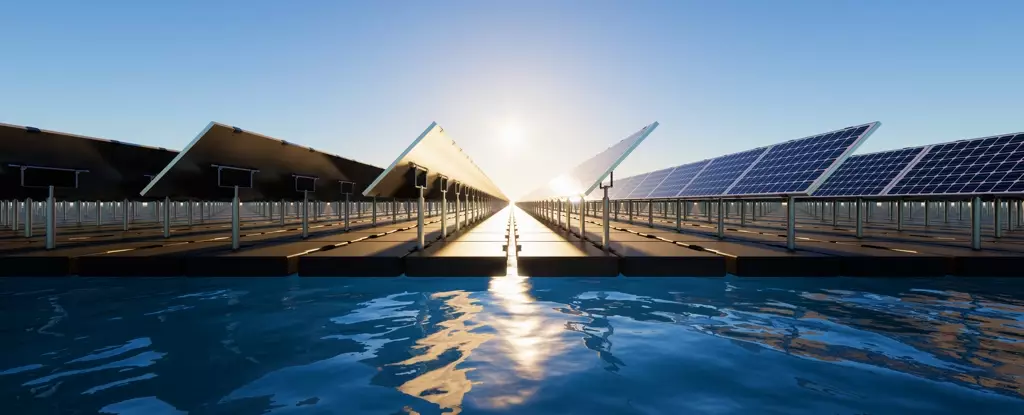The world is gradually moving towards decarbonization and electrification, where solar and wind energy will play a significant role. However, densely populated countries like Nigeria and Indonesia face challenges in harnessing solar energy due to limited space and poor wind resources. Fortunately, the solution lies in offshore floating solar panels, which can provide effectively unlimited solar energy in calm equatorial seas. In this article, we will explore the potential of offshore floating solar panels in Southeast Asia and West Africa and discuss their advantages and challenges.
Our research reveals that the Indonesian archipelago and equatorial West Africa near Nigeria have the greatest potential for offshore floating solar arrays. In Indonesia alone, offshore solar panels could generate approximately 35,000 terawatt-hours (TWh) of energy per year, equivalent to the current global electricity production. These regions experience relatively still and peaceful waters near the Equator, making it feasible to deploy inexpensive engineering structures to protect the floating solar panels.
Overcoming Space Constraints
Densely populated countries like Nigeria and Indonesia have limited space for solar energy harvesting. However, offshore floating solar panels offer a solution to this challenge. By utilizing the vast calm seas surrounding these countries, solar panels can be deployed without occupying valuable land resources. Inland lakes and reservoirs also provide potential sites for floating solar panels, further expanding the capacity for solar energy generation.
Environmental Benefits
One of the significant advantages of offshore floating solar panels is their ability to resolve land use conflicts and protect intact ecosystems. Countries like Indonesia, with high population growth and high environmental values, can benefit from marine floating solar panels. By utilizing the ocean’s vast expanse for solar energy generation, the need to clear land for solar farms is significantly reduced. Moreover, tropical storms rarely impact equatorial regions, making these areas ideal for offshore floating solar panels.
Engineering Challenges and Solutions
While offshore floating solar panels offer immense potential, they come with engineering challenges. Factors such as salt corrosion, marine fouling, and potential damage to the marine environment and fishing need to be considered. Companies are actively working on developing robust engineering defenses to ensure the panels can withstand storms. Furthermore, attention must be given to selecting suitable locations with shallow seas for anchoring the panels to the seabed.
The offshore floating solar industry is still in its early stages, but it holds promise for countries with access to calm equatorial seas. By mid-century, it is estimated that approximately one billion people in these countries will rely mostly on solar energy. Offshore floating panels will serve as a significant component of the energy mix, driving the fastest energy change in history.
The potential for offshore floating solar panels in Southeast Asia and West Africa is vast. By utilizing calm equatorial seas, densely populated countries can overcome space constraints and generate effectively unlimited solar energy. These panels provide an opportunity to decarbonize and electrify the global economy by 2050, supported by solar and wind energy. However, engineering challenges and environmental considerations must be addressed to ensure the sustainable development of offshore floating solar projects. With careful planning and advancements in technology, offshore floating solar panels have the potential to revolutionize the energy landscape and shape a greener future for the world.


Leave a Reply